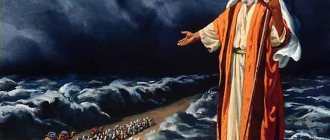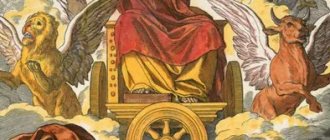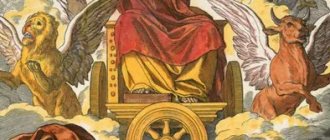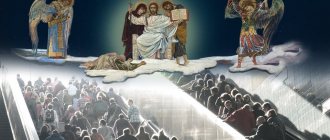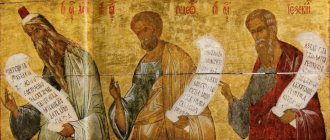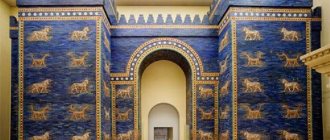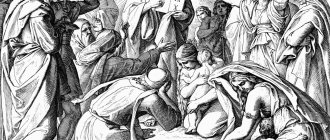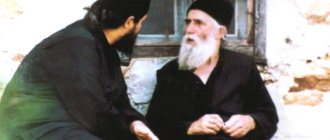Types of prophets in Islam
There are three types of prophets in Islam:
- nabi or simply prophet;
- rasul or messenger;
- ulu l-azm or strong in spirit.
The term "nabi" translated from Arabic means "bringer of news." The term “nabiyu-llah” is also used, which means “messenger of Allah”. This was the name of the prophet who conveyed to people the scriptures or orders of Allah Almighty and His prohibitions, which the Lord conveyed to the rasul or the previous messenger.
The term "rasul" in Arabic means "messenger", and the term "Rasul-Allah" is translated as "messenger of Allah". This term is used to describe a nabi who received a new Scripture from the Almighty or brought a new Law to people.
The rasul or messenger is always a prophet, that is, a nabi. But prophets or nabis are not all messengers or rasul. Prophet Muhammad ﷺ is a rasul. Allah Almighty sends messengers (rasul) to people with scriptures or signs that he sends down for the edification of humanity. The category of rasul or messengers in Islam includes Nuh, Ibrahim, Musa, Harun, Daud, Suleiman, Ayub, Yusuf, Hud, Lut, Ismail, Ilyas, Yunus, Ishaq, Yaqub, Salih, Shuaib, Ilyas, Zakariya, Yahya and Isa.
The angels who brought the great news of the destruction of Sodom and Gomorrah also belong to the rasuls. Each nation or ummah (community) is sent its own rasul.
Allah Almighty addresses the Messenger Muhammad ﷺ as a nabi, calling on him to fight hypocrites and infidels throughout his life. Allah Almighty makes a misak or covenant with the prophets.
The term “Ulu-l-azm”, which translated from Arabic means “strong in spirit”, is used in relation to the prophets Ibrahim, Nuh, Isa, Musa and Muhammad ﷺ, since they were distinguished by their steadfastness and steadfastness in fulfilling the message of Allah Almighty, when they had to face difficulties and hardships. All the holy prophets brought religion to people, showing fearlessness and firmness, but the five prophets of Islam, who are called “Ulu-l-azm,” showed perseverance and fearlessness to a much greater extent in comparison with the rest.
Qualities that Prophets Possessed in Islam
The history of the prophets says that they had a number of qualities that were present in each of them: largely due to these qualities they were chosen for the prophetic mission. Among these qualities are piety, as well as the high authority of the prophets, good birth and pedigree.
The prophets had the ability to perform miracles, which Allah Almighty endowed them with and which ordinary people did not have, so that they could present to others evidence of their chosenness by God and the prophetic mission entrusted to them by Allah. Miracles performed by prophets are called mujizat. Examples of such mujizats:
- Musa's staff could turn into a snake;
- Isa had the ability to raise the dead and heal the sick;
- The Prophet Muhammad ﷺ gave water to an entire army, split the moon, and the greatest miracle of the Messenger of Allah Muhammad ﷺ is that through him Allah Almighty conveyed to people the Holy Book - the Koran.
Prophets of Islam have five basic qualities
- Truthfulness – “sidq” – means that these people throughout their lives spoke only the truth and never lied or distorted the truth. This is proven by the entire history of the lives of the prophets of Islam.
- Loyalty - “amana” - means that these chosen by God during their lifetime were people of honor, and Muslims can follow their example in everything in their lives.
- A quality that is called “tabligh” in Arabic and means that these people are able to convey the prohibitions and orders of Allah Almighty, regardless of the difficulties and obstacles that befell them during life.
- Understanding and natural intelligence - "fatanatun" - are more pronounced among God's chosen ones than in an ordinary person.
- Sinlessness and purity of character - “ismatun” meant that each of them was a sinless person throughout his life, and his thoughts were far from even the thought of committing a sin.
Muhammad ﷺ, the last prophet, was characterized by five more qualities:
- the Messenger of Allah ﷺ stands higher than all the prophets who came before him;
- the Messenger of Allah ﷺ was sent not only to people, but also to jinn;
- Prophet Muhammad ﷺ is the last of the prophets;
- Prophet Muhammad ﷺ was sent to humanity as a blessing for everything in the world;
- through the Prophet Muhammad ﷺ Allah Almighty sent down to humanity a great, main law that will be valid until the Day of Judgment.
First Hajj and meeting with Eve
Adam and Hawwa turned to Allah with a prayer to forgive them this sin, because they repented of what they had sinned.
Allah accepted their prayers and forgave them the sin they committed by ordering Adam and Eve to perform the Hajj. When Adam and Eve carried out this will of Allah, after a long separation they met each other in the valley where the Arafat River flowed.
When they came to the land where Mecca is now, the prophet Adam began to build the Kaaba. The black stone Hajar al-Aswad for the construction of the Kaaba was sent down to the prophet Adam from Paradise.
When he completed this construction, he regularly performed the Hajj to the Kaaba.
There are many points of view regarding who built the Kaaba, and according to one of them, the Kaaba was built by angels, and according to another, by Adam, but there is a third opinion, according to which the first Kaaba was built by Shis, who was the son of Adam.
Adam disobeys Allah
After which the Almighty said that a man and his wife should settle in Paradise, eat from the fruits of its trees, but not approach the specified tree, and if he disobeys, he will become unrighteous.
But Iblis began to deceive Adam into disobedience, saying that the Almighty said so so that a person would not become immortal and similar to the angels by tasting the fruit from such a tree. Since Satan swore by Allah himself, Adam believed him.
Adam and Eve ate the forbidden fruit from the tree, after which they received their sight and saw their private parts, were ashamed of their nakedness and began to pluck leaves from the trees and cover themselves with them.
After Adam and Eve sinned, Allah punished them and brought them down, like Iblis, to earth. On earth they were forced to work to survive, although in Paradise they lived a carefree life and could have everything they wanted.
But Allah did not leave the prophet Adam and his wife Hawwa in the earthly world with his mercy, promising them his guidance. In the sura “Fences” (“Al-Araf”), in the context of the story of the prophet Adam, there is a call to believe in the Almighty and not to succumb to the machinations of the shaitan, and not to justify your sins and your unbelief by the actions of your ancestors.
